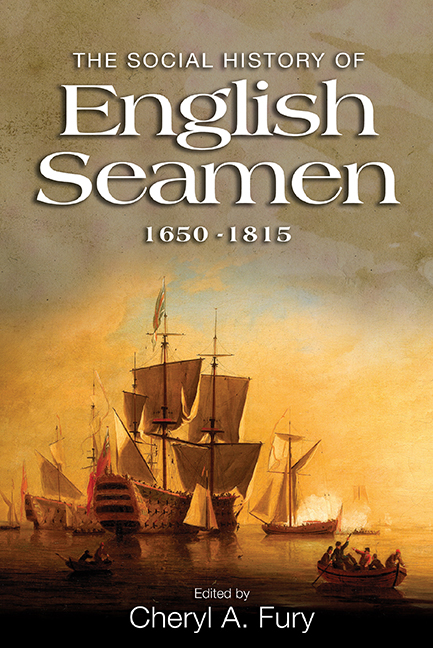Book contents
- Frontmatter
- Dedication
- Epigraph
- Contents
- List of illustrations
- List of contributors
- List of abbreviations
- Introduction
- 1 The Development of Sea Power, 1649–1815
- 2 Naval Seamen, 1650–1700
- 3 Officers and Men of the Navy, 1660–1815
- 4 The Impact of Warfare on Naval Wives and Women
- 5 Officers, Shipboard Boys and Courts Martial for Sodomy and Indecency in the Georgian Navy
- 6 Health Provision in the Royal Navy, 1650–1815
- 7 The Origins and Careers of English Merchant Seamen in the Late Seventeenth and Early Eighteenth Centuries
- 8 Private Enterprise, Public Policy and the Development of Britain's Seafaring Workforce, 1650–1815
- 9 Jack Tar's Food: Masculine Self-fashioning in the Age of Sail
- 10 Pirates, Privateers and Buccaneers: The Changing Face of English Piracy from the 1650s to the 1720s
- Conclusion
- Bibliography
- Index
1 - The Development of Sea Power, 1649–1815
Published online by Cambridge University Press: 11 August 2017
- Frontmatter
- Dedication
- Epigraph
- Contents
- List of illustrations
- List of contributors
- List of abbreviations
- Introduction
- 1 The Development of Sea Power, 1649–1815
- 2 Naval Seamen, 1650–1700
- 3 Officers and Men of the Navy, 1660–1815
- 4 The Impact of Warfare on Naval Wives and Women
- 5 Officers, Shipboard Boys and Courts Martial for Sodomy and Indecency in the Georgian Navy
- 6 Health Provision in the Royal Navy, 1650–1815
- 7 The Origins and Careers of English Merchant Seamen in the Late Seventeenth and Early Eighteenth Centuries
- 8 Private Enterprise, Public Policy and the Development of Britain's Seafaring Workforce, 1650–1815
- 9 Jack Tar's Food: Masculine Self-fashioning in the Age of Sail
- 10 Pirates, Privateers and Buccaneers: The Changing Face of English Piracy from the 1650s to the 1720s
- Conclusion
- Bibliography
- Index
Summary
The era from 1650 to 1815 was an enormously important period in the development of sea power; maritime matters were intimately connected with Britain's imperial and commercial ambitions. It would be impossible to overstate the import of affairs at sea to the engine of state. Certainly the battles and endeavours at sea during this time are the stuff of legends – whether that was Nelson's victories or those of the most infamous names in pirate lore. Whether English, and later British, seamen were serving Britannia aboard naval ships or in more self-serving undertakings at sea, the growth in British sea power during this long eighteenth century is apparent.
Prior to this period, a number of changes allowed for European and, consequently, British, expansion. If we were to focus on military technology and operational considerations, we would acknowledge that the prime means of, and reason for, change was the rise in Europe in the sixteenth century of the large, specialised, sailing, cannon-armed warship, built and maintained just for war, rather than also acting as a peacetime trader. These ships, able to take part in sustained artillery duels at close range, were expensive to build, administer and maintain. As a consequence of this cost and the related need for political support and organisational sophistication, the number of potential maritime powers was restricted, and, by the late seventeenth century, the powerful naval state was no longer coterminous, as it had earlier been, with the commercial territory or port.
The growth of English naval power in both the sixteenth century and the early and mid-seventeenth had equipped England with an important navy and a tradition of maritime power that subsequently affected political assumptions and views about the necessary identity and desirable policies of Britain (the correct term after the Parliamentary Union of 1707 with Scotland) as a military power. Thus, Britain became the leading naval power in Europe, and thus the world, in the period 1690–1715, a position it was to sustain until the Second World War.
- Type
- Chapter
- Information
- The Social History of English Seamen, 1650-1815 , pp. 5 - 32Publisher: Boydell & BrewerPrint publication year: 2017

